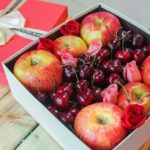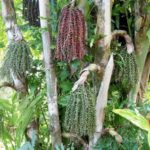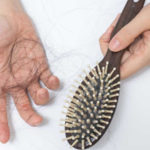In folk life, the hoe and mulberry trees are two familiar trees associated with life. The mulberry tree, also known as the silk mulberry tree, is a type of tree that is closely tied to economic life and is used to raise silkworms. The mulberry tree also represents the changes in human life. In the past, people used to say “the mulberry tree changes” to mean the changes in life and scenery. The profession of growing mulberry trees to raise silkworms has been around since ancient times, helping our ancestors have silk clothes.
Especially, the silk mulberry tree is associated with folk beliefs in warding off evil spirits. When a person is possessed by a spirit, they use mulberry branches to expel it. When someone is weak or sick, they wear a mulberry necklace. When there is a birth in the family, they hang mulberry branches to ward off ghosts and demons. When a child is troubled by an evil spirit, they take a mulberry branch to drive it away.
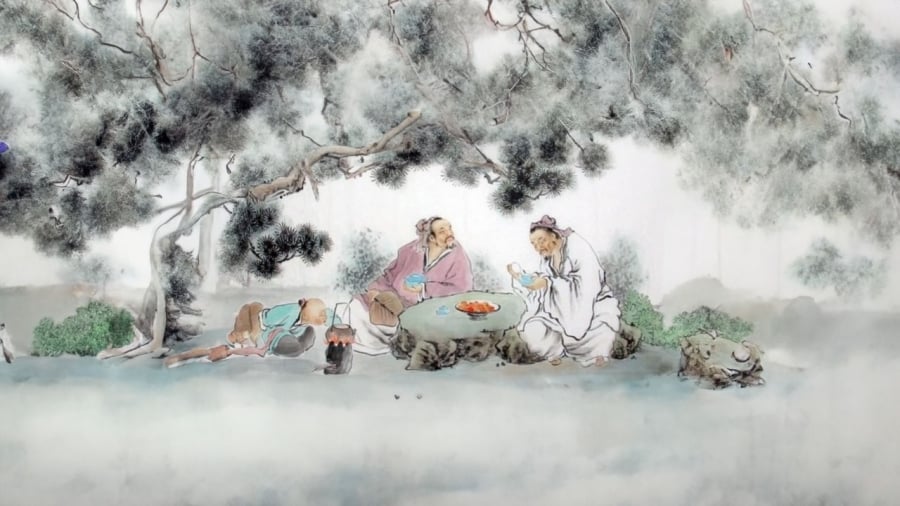
On the other hand, the hoe tree is a medicinal plant grown and harvested for daily tea. Especially, the hoe flower is a precious herb in traditional medicine and is still considered a precious medicinal ingredient for its beneficial effects on blood circulation.
Why plant the hoe flower in front of the house?
The hoe flower belongs to the mulberry family, the flower withers and blooms white on the branches. The small hoe leaves are oval-shaped. The hoe flower symbolizes wealth and abundance. In particular, a legend in the General History book tells that there was a man named Vương Hựu who planted 3 hoe trees in front of his yard, hoping his children would achieve high positions in the court. Later, his child did indeed reach the position of a high-ranking official. Therefore, later generations regarded the hoe tree as a tree of wealth and good fortune for the family. Planting hoe trees in front of the house brings fame and fortune to the descendants, makes them become officials, and brings wealth and prosperity.
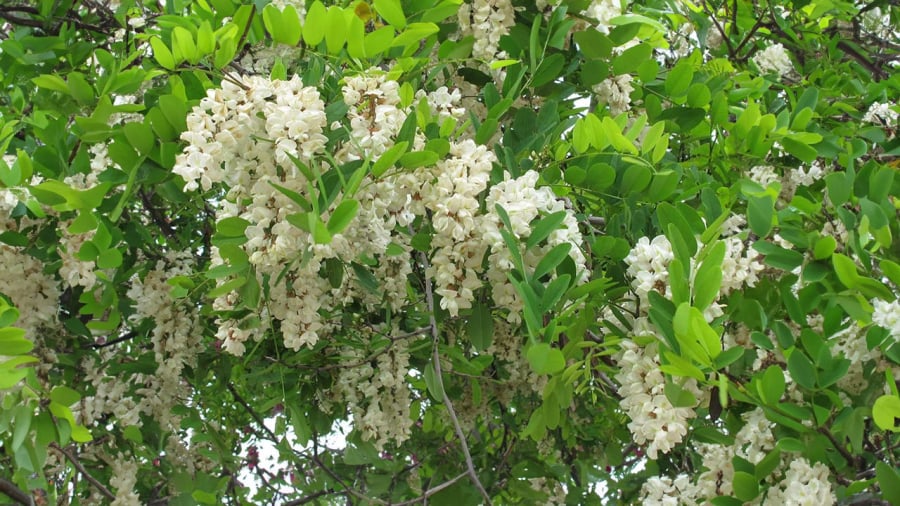
In the royal court, there are also 3 hoe trees representing the 3 most important officials in the court: the military advisor, the minister, and the treasurer. That’s why planting hoe flowers in front of the house is considered a symbol of prosperity, fame, and glory for the family. For those pursuing knowledge or business, the hoe tree brings them good luck. However, planting hoe trees behind the house is not as auspicious. Is there any official who is prestigious when standing in the backyard? Is there any path to fortune that goes through the back door? That’s why our ancestors advised their descendants to plant hoe trees in front of the house, not behind, as it brings bad luck and implies lack of transparency and trustworthiness.
What is the effect of planting mulberry trees behind the house?
In contrast to the hoe tree, our ancestors advised planting mulberry trees behind the house. The reason is that “dâu” in Vietnamese sounds similar to the word “tang,” which means mourning, grief. Planting mulberry trees in front of the house foretells the risk of mourning and tragedy. Planting in the front yard means anticipating separation and death. Moreover, mulberry trees carry negative energy, so planting them in front of the house will fill the house with negative energy, while humans need positive energy to develop and attract wealth and prosperity. Planting mulberry trees in front of the house makes the god of wealth not want to enter the house and makes visitors feel unlucky, discouraging business dealings.
However, planting mulberry trees behind the house has its benefits. Mulberry trees have stronger negative energy than any other type of ghost. Ghosts usually enter the house from the back. Therefore, planting mulberry trees behind the house helps to bring peace to the family, expel ghosts, and ward off evil spirits.
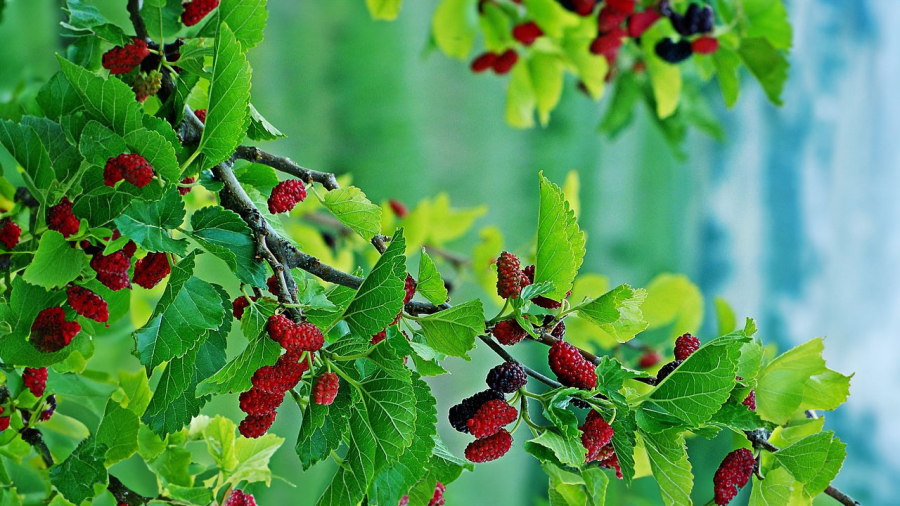
When there are hoes in the front and mulberry trees in the back, the homeowner attracts the god of wealth, achieves wealth, fame, and glory, and his children are successful and prosperous. The family has great potential, is highly regarded, and is protected from disturbances from dark forces. This is the perfect combination for a prosperous and prosperous life.
This information is for reference and contemplation purposes only.




























